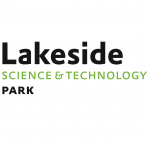Efficient Multi-Encoding Algorithms for HTTP Adaptive Bitrate Streaming
Picture Coding Symposium (PCS)
29 June-2 July 2021, Bristol, UK
[PDF][Slides][Video]
Vignesh V Menon (Alpen-Adria-Universität Klagenfurt), Hadi Amirpour (Alpen-Adria-Universität Klagenfurt), Christian Timmerer (Alpen-Adria-Universität Klagenfurt), and Mohammad Ghanbari (School of Computer Science and Electronic Engineering, University of Essex, Colchester, UK)
Abstract:
Since video accounts for the majority of today’s internet traffic, the popularity of HTTP Adaptive Streaming (HAS) is increasing steadily. In HAS, each video is encoded at multiple bitrates and spatial resolutions (i.e., representations) to adapt to a heterogeneity of network conditions, device characteristics, and end-user preferences. Most of the streaming services utilize cloud-based encoding techniques which enable a fully parallel encoding process to speed up the encoding and consequently to reduce the overall time complexity. State-of-the-art approaches further improve the encoding process by utilizing encoder analysis information from already encoded representation(s) to improve the encoding time complexity of the remaining representations. In this paper, we investigate various multi-encoding algorithms (i.e., multi-rate and multi-resolution) and propose novel multi- encoding algorithms for large-scale HTTP Adaptive Streaming deployments. Experimental results demonstrate that the proposed multi-encoding algorithm optimized for the highest compression efficiency reduces the overall encoding time by 39% with a 1.5% bitrate increase compared to stand-alone encodings. Its optimized version for the highest time savings reduces the overall encoding time by 50% with a 2.6% bitrate increase compared to stand-alone encodings.
Keywords: HTTP Adaptive Streaming, HEVC, Multi-rate Encoding, Multi-encoding.







